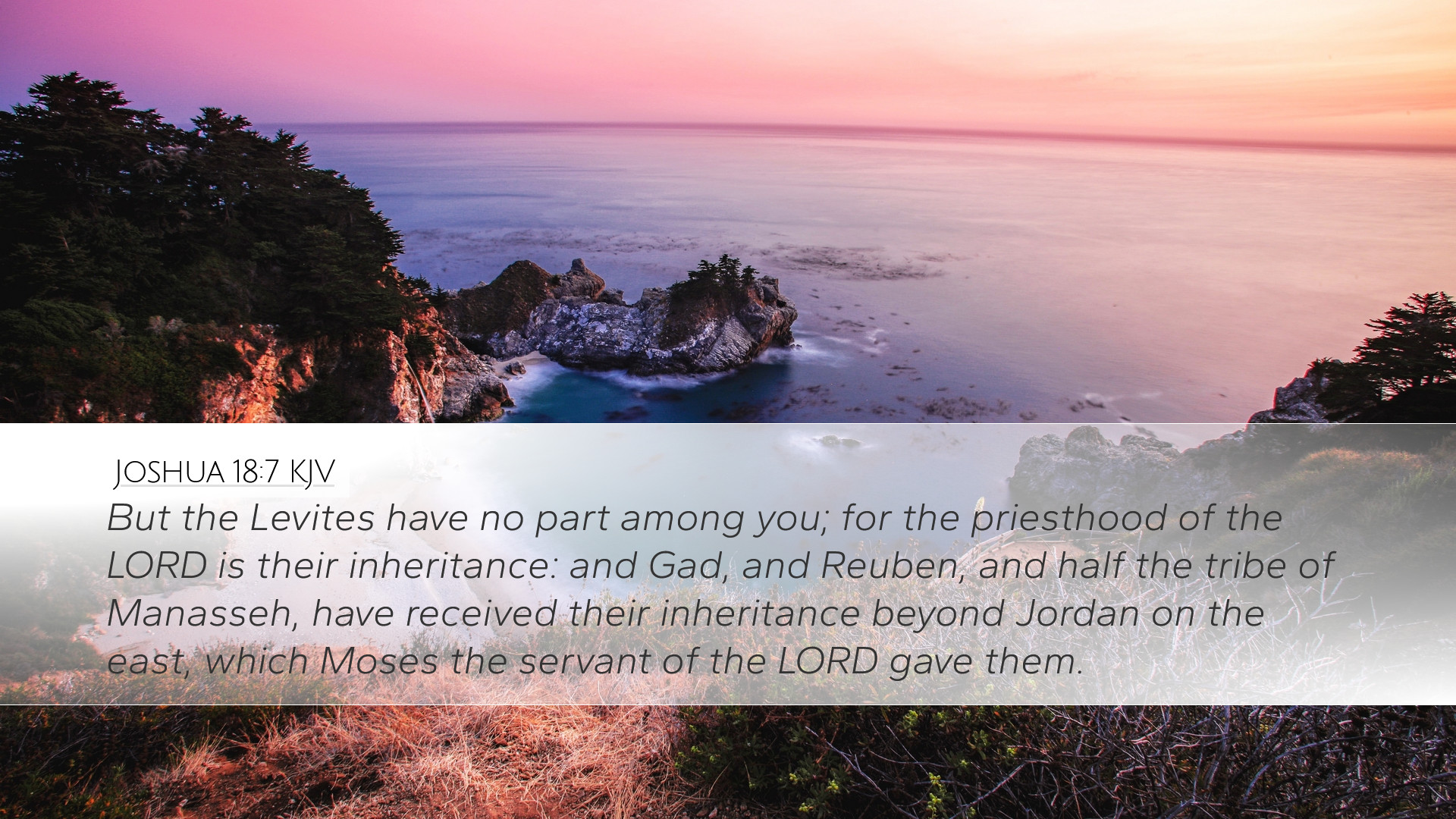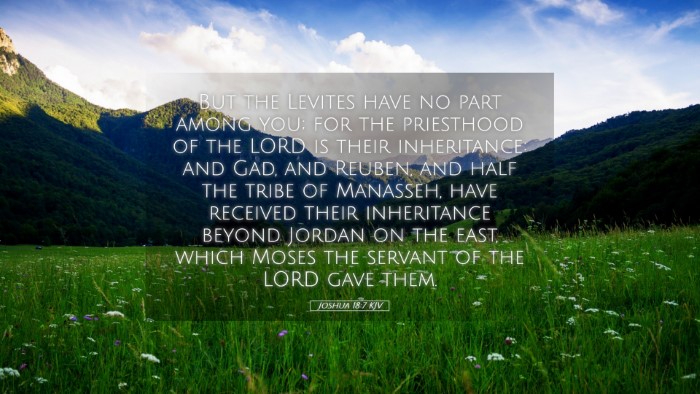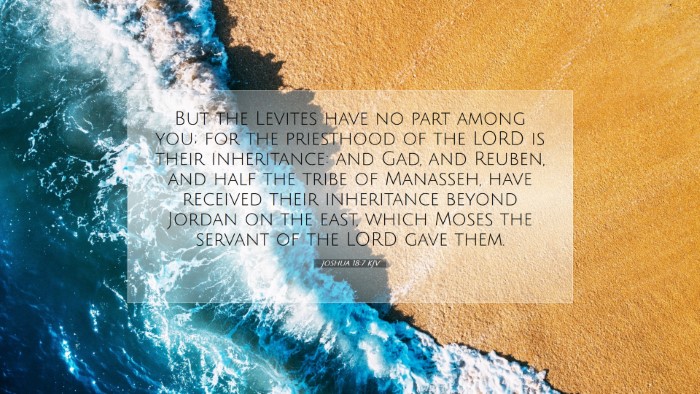Bible Commentary on Joshua 18:7
Verse: "But the Levites have no part among you; for the priesthood of the Lord is their inheritance: and Gad, and Reuben, and the half tribe of Manasseh have received their inheritance beyond Jordan eastward, which Moses the servant of the Lord gave them."
Introduction
This verse, situated in the narrative of the distribution of land among the tribes of Israel, highlights the unique role of the Levites and the structured division of the Promised Land. It serves not only as a literal allocation of land but also conveys profound theological and spiritual truths about inheritance, leadership, and the nature of God's calling among His people.
The Levites' Inheritance
Separation and Purpose
As noted by Matthew Henry, the Levites are distinguished from the other tribes because their inheritance is not of land but of service to God. This separation is significant not only for practical purposes but also symbolizes their unique spiritual calling. They were entrusted with the priestly duties and the care of the tabernacle, which illustrates that their 'inheritance' lies in their relationship with God and their service to His people rather than in territorial possession.
The Role of the Priesthood
Albert Barnes emphasizes that the Levites' lack of land was a divine arrangement intended to keep them closely connected to God and the community. Their duties required them to travel and minister throughout the tribes, thereby reinforcing their role as intermediaries between God and His people. This serves to illustrate that in the economy of God's kingdom, spiritual leaders may have different forms of inheritance that are rooted in serving rather than possessing.
Inherited Blessings Beyond the Jordan
Testimony of Moses' Leadership
Adam Clarke elaborates on the significance of the lands won by the two and a half tribes, Gad, Reuben, and the half-tribe of Manasseh. Their inheritance, granted by Moses, serves as a reminder of the faithfulness of God in keeping His promises even before the full conquest of Canaan was realized. Their location east of the Jordan, while complete in itself, illustrates the tension between physical inheritance and spiritual faithfulness.
The Implication of Their Choice
The choice of these tribes to settle east of the Jordan is not just a logistical decision; it reflects a deeper spiritual implication about priorities and faith. Matthew Henry points out that the ease of settling in fertile land may have swayed these tribes, raising the question of how often God’s people choose convenience over the calling of God. Their decision came at a cost: a semblance of separation from the central worship of the nation, emphasizing the principle that proximity to God often involves challenges and sacrifices.
Theological Insights
Inheritance in God’s Economy
In this verse, we find a foundational truth: God's economy of inheritance transcends mere physical or territorial possession. God’s design necessitates that leaders—and indeed, every follower of Christ—understand that their true inheritance is spiritual. Albert Barnes references how this principle relates to the New Testament teaching about believers being heirs of God and joint heirs with Christ (Rom. 8:17), fulfilling their roles not in self-aggrandizement but in service to the Kingdom.
Ministry as Inheritance
The typology found in the Levites points towards the body of Christ, where every believer has a role to play. Just as the Levites had specific duties to further God’s work, so too do believers today carry the mantle of service within the community of faith. Adam Clarke vigorously argues that the absence of land for the Levites should encourage modern believers to realize that their rewards may manifest differently than expected but are nonetheless vital in God's purpose.
Conclusion
Joshua 18:7 encapsulates profound truths about identity, inheritance, and divine purpose. The distinctions made within this verse challenge contemporary readers to reflect on their own spiritual inheritance, their commitment to service, and the choices they make in response to God’s call. Whether through the metaphor of land or the role of the Levites, the passage urges believers to find their worth not in earthly gain but in faithfulness to God’s kingdom work.
This verse ultimately calls to every pastor, theologian, and student to embrace the overarching narrative of God's faithfulness—one that continually invites us into a deeper relationship with Him, recognizing that true fulfillment comes through service, not simply in possession.


